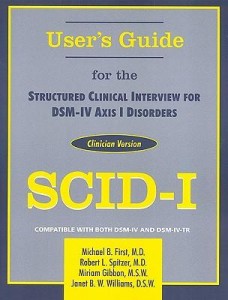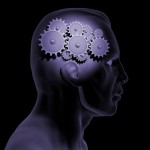Getting a Bipolar Diagnosis
If you suspect that you or someone you love may have bipolar disorder, it is important to seek out a diagnosis for the condition. However, getting a diagnosis can be a tricky process. Often, bipolar disorder is confused with other conditions, and you will need to have an official diagnosis from a psychiatrist or mental health professional before you can be treated for the condition properly. In addition, dealing with the diagnosis can itself be a stressful state. In this article, I will discuss when you should suspect bipolar disorder, how to go about getting a diagnosis, and what to do once you or someone else has been diagnosed.
When to Suspect Bipolar Disorder
People, even psychiatrists, cannot diagnose themselves with bipolar disorder. However, in order to be concerned enough about bipolar disorder to seek a diagnosis from someone else, there are a number of symptoms to look for. Some of these symptoms may be signs of other disorders, but some of them are unique or at least almost unique to bipolar disorder.
Note that drug and alcohol use can simulate the effects of bipolar disorder and other mental illnesses. In fact, it is very difficult to diagnose bipolar disorder in someone with an addiction, because it is almost impossible to separate out which symptoms might be the result of a mental illness and which might be the result of the substances. If you or someone else has addiction problems, it may be best to work through addiction services, rather than through the medical system as I will suggest below.
The following symptoms may be signs of bipolar disorder, and should raise a “yellow flag”, so to speak:

Source: stevensnodgrass - CC BY 2.0
- Cycling Shifts in Mood: You notice that your or someone else’s mood oscillates widely from elation to depression and in a generally cyclical way.
- Periodic Irritability: You notice that you or someone else is irritable, but only for a few weeks or months at a time, and then it goes away. It will then return weeks or months later.
- Lack of Effect of Antidepressants: Someone who has major depressive episodes and takes antidepressants, but finds that the antidepressants accomplish absolutely nothing may have bipolar disorder rather than unipolar depression.
The following symptoms are more likely to be signs of bipolar disorder, as they are more associated with that condition than with more common conditions:
- Pressured Speech: People with bipolar disorder will start to speak very quickly, as though their mouth is trying to keep up with their brains. They will have the tendency to talk over and interrupt other people.
- Grandiosity and Delusions of Grandeur: People with bipolar disorder tend to overestimate their own abilities, often substantially. This can sometimes lead to delusions, in which people think they are, for instance, a famous person.
- Excessive Involvement in Pleasurable Activities: People with bipolar disorder often spend wildly, gamble, or are sexually promiscuous. However, these behaviors are periodic.
- Extreme response to antidepressants: Someone who has severe elation and even psychotic symptoms as a response to antidepressants may be bipolar.
Please don’t use the above to diagnose yourself. If you observe any serious psychiatric symptoms at all, such as delusions, suicidal thoughts or attempts, or hallucinations, don’t worry about what you have but simply go to the local emergency room and seek treatment.
Getting a Psychiatric Referral
Because people cannot diagnose themselves, you will need to speak to a psychiatrist or other mental health professional in order to receive a proper diagnosis of bipolar disorder. However, this can be a tricky situation in itself. In some areas and if you are wealthy enough, you may be able to simply walk into a psychiatrist’s or therapist’s office office and pay for an assessment. In other areas and for many people, it will require a referral from another medical specialist. In this article, I will discuss the process of getting referred to a psychiatrist for a diagnosis.
Non-Crisis Situations

Source: hang_in_there - CC BY 2.0
There are a few things that you should bring up when speaking to your family physician:
- Explain to them exactly the symptoms that you have.
- Be clear that you would like to have an assessment for the possibility of bipolar disorder or other, related mental illnesses.
- If you have a history of bipolar disorder or other mental health problems in your family, let your physician know this as well.
- Discuss with them the effects (or lack of effects) that antidepressants have had on you.
- Be sure to include any cases where you have been suicidal or harmed yourself or others (note, if you are currently suicidal or harming yourself or others, go to emergency, not your family physician).
At this point, your physician will likely provide a referral to a psychiatrist (in fact, he or she will probably be happy that you’ve provided such clear information). In the event that your physician does not provide a referral, you have three choices. First, you could seek another physician’s referral. Second, you could accept your physician’s advice and not seek a further diagnosis. Finally, you could go directly to a psychiatrist or therapist yourself.
Crisis Situations
Getting a diagnosis in crisis situations is in some ways easier, but generally a lot more scary. In these cases, you will often be taking yourself or a family member to the emergency room. At that time, the patient (you or another person) will receive some sort of preliminary assessment and either be placed in hospital care or receive some sort of referral to a psychiatrist (if they determine that the patient is not an immediate danger to yourself or others). You should go to the emergency room if you or someone else:
- is suicidal or has attempted suicide.
- has harmed himself, herself or someone else physically, such as cutting.
- is hallucinating.
- is having delusions, defined as irrational thoughts not shared by the community.
- has completely broken down in terms of coherence, is “babbling” or is severely agitated.
In your own case, you can go to the emergency room yourself, unless the situation is severe enough that you worry you will not get there, in which case you can call an ambulance. In the case of other people, the situation is a bit more complicated. You can either persuade the person to go to the emergency room, or, if that doesn’t work, you can call an ambulance for them. Ambulance workers are trained to recognize when they have the right to take a person against his or her will to the hospital.
In these cases, you’re not really “seeking” a diagnosis. You’re seeking immediate help. However, the result is ultimately the same. You or another person will receive an assessment for bipolar disorder and other mental illnesses.
The Diagnostic Process

Source: bizrate - Fair Use Rationale: Depiction of the work in question.
The information on that questionnaire is largely self-reported. In other words, you will need to be honest, or you risk having an inaccurate assessment. It can be tempting, if one is really worried that he or she is sick, to stretch the truth in terms of the severity of the symptoms. Conversely, it can be tempting, if one is worried about seeming strong and confident, to underplay the extent of the symptoms. Remember that the goal is to receive an accurate diagnosis so that you can get the best help. Honestly is especially important, and even small fibs can potentially set back treatment for years.
The usual interview that people with suspected bipolar disorder in North America receive is what is called the “Structured Clinical Interview for DSM-IV Axis I Disorders” or SCID I (and you may occasionally hear psychiatrists or therapists call it the “skid one”). The SCIDs were developed so that there would be a standard interview that could be used by multiple therapists. Without such an interview, it would be impossible to compare data or to be sure that one therapist’s diagnoses are reasonably consistent with another therapists diagnosis. For example, when SCIDs were used on identical twins, it was discovered that the correlation was far higher than people had suspected.
There isn’t actually a bipolar disorder test designed for bipolar itself. Instead, the SCID I tests for the entire range of what are called “major mental disorders”, which includes bipolar disorder but also schizoaffective disorder, major depressive disorder, anxiety disorders, ADHD, autism, anorexia, bulimia and schizophrenia (the SCID II tests for personality and intellectual disorders). The reason that there is a single test is that there is often a great deal of overlap in the symptoms (and in many cases the associated brain states) of these disorders, and a single test makes it easier to avoid misdiagnosis of one condition as another.
If the test shows that you or your loved one has bipolar disorder, that person will receive a diagnosis of bipolar disorder. Sometimes, the test may show another disorder is actually the cause of the symptoms. In other cases, there might be multiple disorders at the same time, such as the bipolar disorder with ADHD, a quite common combination (someone with features of both bipolar disorder and schizophrenia disorder, however, may be diagnosed with schizoaffective disorder, not both). In some other cases, the results might be inconclusive. Either testing for personality disorders might be done, or the tests might be redone or the results examined by another expert.
What To Do Once You Have a Diagnosis

Source: cambodia4kidsorg - CC BY 2.0
Coming to terms with having bipolar disorder is a difficult process. In many ways it is a lifelong process. Over time, people become more and more aware of the kinds of limitations that arise from bipolar disorder. On the one hand, this is a very good thing, as we become less and less angry with ourselves for our perceived failures. On the other hand, it can be disappointing to discover that certain goals we might have had are no longer within our reach. One of the first and best things to speak with a therapist about after receiving a treatment of bipolar disorder is to speak about the diagnosis itself. The feelings are likely themselves very raw at that point, and it is a good opportunity to learn about the condition.
There are a number of resources available for learning about bipolar disorder. Providing just such a resource is why I started what has become Bipolar Village. There are also a large number of books on bipolar disorder that are available that can get you up to speed about the facts about bipolar disorder and treatment options. However, you may also want to read about the experiences of people who have bipolar disorder. Books like An Unquiet Mind by Kay Redfield Jamison or Wishful Drinking by Carrie Fisher provide excellent first-person accounts of the experience. I provide a number of resources at the Bipolar Village Bookstore.
It is also very important to seek out treatment. A psychiatrist can help you with pharmacological treatment for your bipolar disorder. Most commonly, people with bipolar disorder are given either mood stabilizers or what are called “atypical antipsychotics”. Getting the right combination of medications can be a tricky process and it will be different for each person. This is why it is best to have a psychiatrist who can help with the process of finding this combination.
In addition, there are numerous therapists who can help with bipolar disorder. This person may or may not be your psychiatrist (though there are some conveniences in having it be the same person if you can manage it). Therapy can be expensive, so if you cannot afford it, then there are group therapy sessions available in most communities. Just ask your psychiatrist about local groups, call local mental health centers or even use the internet for searches (I found a group I’ve been attending for years simply by typing “bipolar” and my city). There is nothing wrong with seeking both individual treatment and group support.
Finally, there is the issue of what to do in terms of your family and workplace. While telling family members can be difficult, each person who accepts your condition can be a lifelong support for you. It may be especially important to discuss the issue with spouses and partners, because bipolar relationships have their own unique sets of issues, and you and your partner will be better able to deal with them if both of you know what is going on. Workplaces are tricky, and you will just need to use your best judgment. While it is technically illegal to discriminate against those with bipolar disorder in all but a few positions (such as armies and police forces), that doesn’t mean it doesn’t happen. If you think the accommodations that will come from revealing your condition at work will outweigh the possibility of discrimination, then it may be worth revealing the condition to your immediate supervisors.
Summing It Up
Getting a bipolar disorder diagnosis can be a tricky process. However, it usually involves a fairly standard set of steps.
- First, speak to your family doctor or other primary care physician (including the emergency room in the case of an emergency).
- Next, there will be a structured interview, where bipolar disorder and other mental disorders will be considered.
- Finally, once you have a diagnosis of bipolar disorder, you can try to find out as much as you can, arrange treatment and make decisions about how and whether to let others know about the condition.
If you or someone you love has received a recent diagnosis of bipolar disorder, I wish you all the best on this difficult journey.









I am writing for my friend ( she is from Poland and her english is not easily understood) who has a son that is mentally retarded and cannot communicate with speech. He is approx. 45 years old and lives in an assisted living home. He has recently been diagnosed as bi- polar and is being heavily medicated. Being kept in a zombie like state. He recently had an EEG which was normal. My friend would like to know if it is even possible to diagnose him when he cannot answer questions. Thank you, Dana Small
Hi Dana,
I’m sorry your friend and her son are having so many difficulties. My understanding is that diagnosis in people who cannot communicate is done through observing behavior rather than through the standard questionnaires. They will look for mood episodes and for other symptoms.
Your friend may still seek a second opinion for her son, however, when it comes to the diagnosis. Also, if he is having trouble with the medications, she may also seek other medicinal options. Some medications are much better than others when it comes to cognitive dullness.
I hope everything goes well.
Best,
Daniel
My partner has many good qualities but has hugely fluctuating moods and cannot see how his outbursts upset me and believes me to be the one with the problem. He drinks every evening and sleeps all day and then gets up and starts giving orders. Events such as Christmas birthdays- any days of celebtration send him into a depression for days. I brought him to my doctor after a family holiday where he refused to speak to me the entire time but the doctor told him he was simple a ‘creative guy.’ Then his moods will settle and he will behave really well and I believe everything alright until the next time. I have two children and now am asking him to move out although they love him. In lucid moments he can admit he may be bipolar but then back to blaming me. How can I make someone see the effect they have and deal with the problem?
Hi Fiona,
It’s very difficult to help someone else with a diagnosis, since you ultimately aren’t in control. It sounds like he was at least willing to go with you to a doctor, so you may be able to build on that, and take him to someone who actually understands mental illness during one of his lucid periods. I hope everything goes well for you and your partner.
Best,
Daniel
Hi. Ever since school I’ve been living with the possibility that I have bipolar as my behaviour was recognised by many teachers and even my counsellor as being extremely up and down and showing many similarities to that of typical bipolar behaviour. I was taken to see a psychiatrist but (stupidly) lied my way through the questionnaire and walked out of the hospital as I did not want to be labelled with a mental illness and consequently never returned. I now regret this so much as I was so lucky to be able to get a diagnosis so quickly. I am now 20 and have been to hospital twice due to severe depressive episodes, and was diagnosed with depression, despite trying to explain how I so often experience such elated moods which lead me to feeling that I can achieve anything at all and begin to lose self and social awareness. I have experienced a fair amount of hard times during my childhood but find even now, when things appear to be great, my moods can take a turn for the worst and I can end up in bed, crying, wishing I could end everything and begin to fantasise over self harming (one of my coping mechanisms through both high and low episodes). In other extremes I jeopardise my own work career by doing things that are utterly stupid in the work place (like wrapping decorations around myself and running around singing – simply because it feels so right in a hypermanic state). I feel things more intensely than ever before and find beauty in everything, I especially become obsessed with the sunrise and set? My need for sleep fluctuates too, and sometimes I find that even when I feel so tired, I just cannot sleep! I’ve now started a new job and am keen to remain professional and not allow whatever is wrong with me to impact on this. But I now don’t know whether it is time to go to the doctor and speak honestly in an attempt to get some kind of diagnosis in order to start understanding my thoughts and behaviour? Sorry this is so long, any advice or thoughts you have would be great. Thank you.
Hi, C.,
Yes, it sounds to me like you should speak to someone, especially since you are having thoughts of self-harm. Having a diagnosis can really help in finding proper treatment.
Best,
Daniel
I was diagnosed with bipolar disorder about 8 years ago. It was my therapist that I had been seeing for about a year at that point that wanted me to see the psychiatrist. When I was initially diagnosed by the psychiatrist I was in denial and did not want to believe it. It took me about two months of taking a second look at my life and talking to my therapist that I realized I was bipolar. I had been living in a life of mania for at least six months at that point. Once I was put on medication my moods started to shift rapidly between mania and depression. The first couple years after being diagnosed were horrible but since than I have learned more about bipolar and my triggers and have been doing better. Last year I finally had to stop working because I was in a stressful job and stress is one of my triggers. I cycle about every 3 to 4 months now.
It took me a long time to come to terms with the diagnosis, too, Debbie. Of course, the fact I was put on the wrong medications didn’t help much either. I find it’s something that really got better after learning to integrate it and find ways of coping with it, but it was very hard at first.
To All: I struggled with symptoms for at least 7 years before being diagnosed. I did self diagnose. I had studied mental illness a bit in high school, when I was first experiencing symptoms, but I didn’t think that I was one of “those people”. It wasn’t until I started to recognize the symptoms in myself while in University that I went to my GP with my concerns… thankfully, she had also been my father’s doctor for a time (who’s suicide had triggered my first MAJOR episode), so she was familiar with my family history, and did not hesitate to refer me. By the time I saw the P-doc, I was desperate for an answer, so I did not have a hard time with the diagnosis – but I did have a very hard time accepting medication – I still do, for a plethora of reasons. For some reason, I also had a hard time convincing the rest of my family that my condition was real.
Moral of my story: I had to see the patterns in my own behaviour, because no one else had a clue. If you feel that there is something “wrong” with you – don’t stop talking until you find someone who will listen.
That’s a good suggestion, Nicole. I went for years before someone finally said to me, “You may want to consider seeing a psychiatrist. I know one, so I can help set it up.” If I’d been more aware earlier, it might not have taken five years from my onset.
PS
The only thing, as far as I know, that my father had ever been officially diagnosed with was being a hypochondriac. Of course I don’t know for sure, but I suspect that if he had gotten the proper help, he may still be alive, and maybe even happy.